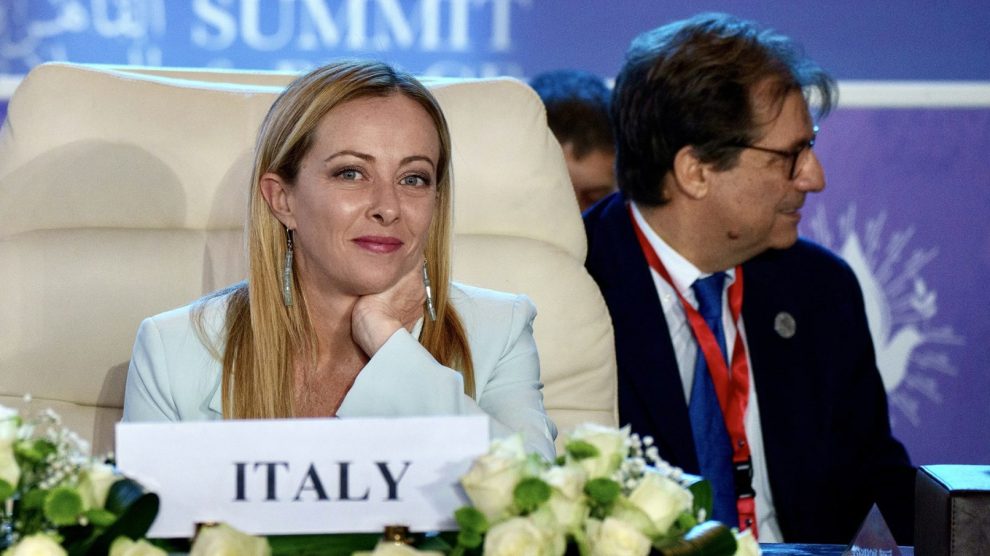Ambassador Francesco Talò takes the fall. On Friday, Prime Minister Giorgia Meloni announced that the experienced diplomat had resigned, thanking him for assuming responsibility for the incident at the centre of Italy’s political scene. He had been indicated by some in the political and mediatic circles as the final responsible for the lack of oversight that brought two Russian comics to get on the phone with PM Meloni.
The “comic” appears on Italian TV. Lexus (his real name is Alexey Stolyarov), one of the two comics that engaged in the sophisticated operation to trick PM Meloni’s office, was a guest at Thursday’s edition of Otto e mezzo, a talk show and current affairs programme on private broadcaster La7. He was questioned about the incident and challenged by personalities in the room and took the chance to keep trolling the Italian state apparatus while live on Italian airwaves, depicting himself as a mere entertainer and not an asset of the Russian State.
We were just kidding. “I don’t understand why you’re inventing these things about a secret operation,” said Mr Stolyarov at one point, noting that he and his partner are “simple people” that “only asked questions” and suggesting that pointing the finger at the Kremlin was an excuse to overlook the state of the Italian State’s security protocols, which “is average if we compare it with others.”
- “Of course, in Russia, the United States and China, security works better,” he said, adding that he didn’t think that Italian secret services made a mistake: “We were lucky, and our professionalism helped us a lot.”
- While Mario Sechi, former press officer of the PM, spoke of hybrid war, the Russian comic performed mocking gestures.
How lucky indeed. As Decode39 reported, the sophistication of the operation and the string of high-profile victims of the “comic” duo suggests they have access to higher-level tools and techniques than the average prank caller. Proofpoint, a US-based cybersecurity company, lists the duo as “TA499”: Russia-aligned threat actors that “aggressively” engage in email campaigns and leverage artificial intelligence to produce deepfakes to get to world leaders.
- Previous victims range from Spanish and Canadian PMs Pedro Sanchez and Justin Trudeau to former German Chancellor Angela Merkel and former US State Secretary Henry Kissinger.
The name of the game. Although there’s no publicly available evidence of the duo receiving support from the Kremlin, Proofpoint noted they are “almost certainly” elements of pro-Russian propaganda geared at greeting politically negative content on those who oppose Russia’s full-scale invasion of Ukraine. Their political affiliation is clear enough: as Mr Stolyarov repeated on Thursday, he would not perform a similar trick on Russian President Vladimir Putin.
- “We don’t want to harm our country. We don’t want unrest here; we don’t want to do anything that would help the enemies of Russia,” the duo told The Guardian in 2016.
The Kremlin chimes in. Naturally, Spokeswoman Maria Zakharova didn’t waste the occasion to spout some propaganda, rejecting accusations about the Russian services being behind a disinformation operation and stressing that the Italian PM had expressed “her position” and “her thoughts” on her Telegram channel in response to Mr Sechi’s criticism.





